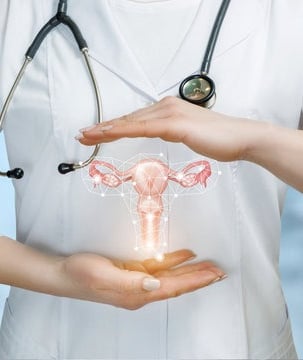Support for reproductive health, from family planning to fertility treatments.
"Gynaecology plays a critical role in preventive health, reproductive care, and the management of conditions affecting the female reproductive system. Routine check-ups, screenings, and consultations with a gynecologist empower women with knowledge and early detection, promoting long-term health."
"Gynecologists, support you with the highest quality medical care."
GYNECOLOGY


Gynaecology plays a critical role in preventive health, reproductive care, and the management of conditions affecting the female reproductive system. Routine check-ups, screenings, and consultations with a gynecologist empower women with knowledge and early detection, promoting long-term health.Gynecologists use a range of diagnostic and therapeutic procedures. Some of the procedures that are widely used in gynecology include:-
Preventive Care and Screenings
Hysterectomy or removal of the uterus
Ovary removal
Removal of fallopian tubes during surgery
Taking cone biopsies from the inner walls of the uterus if cancer of the womb is suspected
Colposcopy and hysteroscopy, where the insides of the uterus are viewed using endoscope like instruments
Taking biopsy or tissue samples from the cervix, if cancer is suspected
Taking routine Pap smears from the cervix in order to diagnose and detect cervix cancer
Ultrasound examination of the reproductive organs
Removal of uterus fibroids
Diagnosis and treatment of sexually transmitted infections
Diagnosis and treatment of urinary incontinence
Diagnosis problems with menstruation like absence, heavy bleeding, irregular or no-onset of menstruation etc.
Diagnosis and treatment of cancers of cervix, vagina, vulva, uterus or ovary along with a team of physicians and surgeons including an oncologist or cancer specialist..
High Risk Pregnancy includes
Bad Obstetrics history
Heart disease
Hypertension or preeclampsia
Diabetes (IDDM/NIDDM)
Severe anemia
Haemolytic anemia
Twins or triplets
Placental abruption
Bleeding disorders
Thalassemia
History of thrombosis or thrombophilias
History of neurological disease
Malignancy (cervical, ovarian or breast)
Antiphospholipid syndrome
Cervical incompetence(elective or emergency)
Fibroid uterus
Congenital malformations that can survive
High Risk Labour includes
Prolonged labour
Previous Caesarean
CPD
Preterm labour
Obstructed labour
Shoulder dystocia
Retained placenta
Inversion of uterus
Rupture uterus
Perineal tear


Dr. Yashaswini Upadhyay
MBBS., MS. (Gynecologist)
Care
Your health is our utmost priority and commitment.
9696816375
© 2025. All rights reserved.
Get In Touch
744/1470, Saha Urf Pipalgaon, Targhar Road, Jhalwa, Prayagraj-211012
